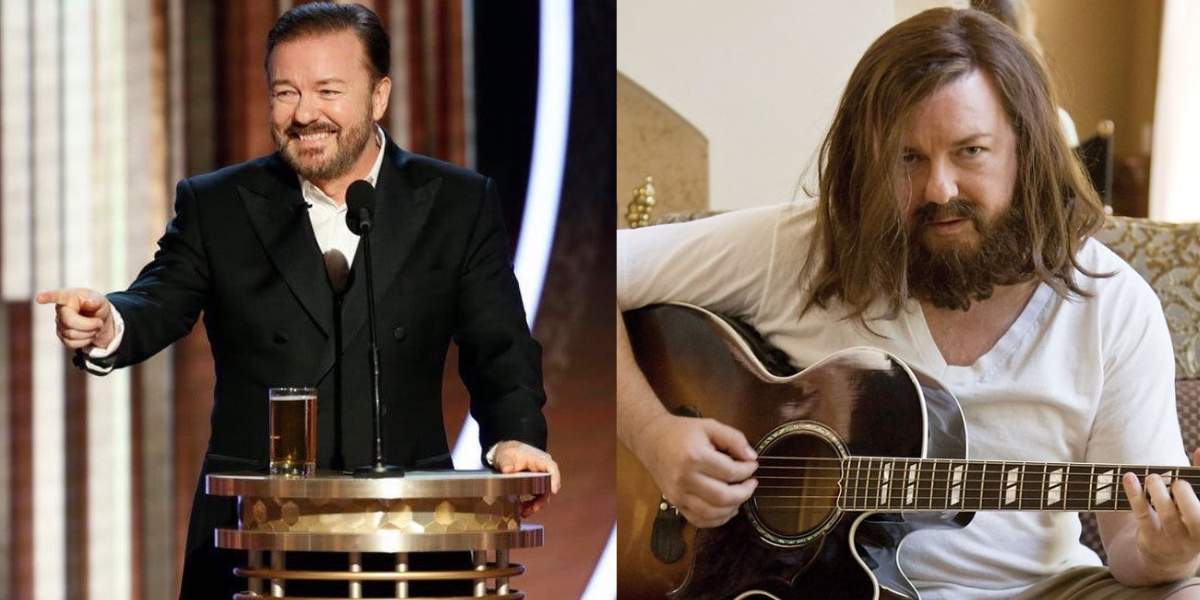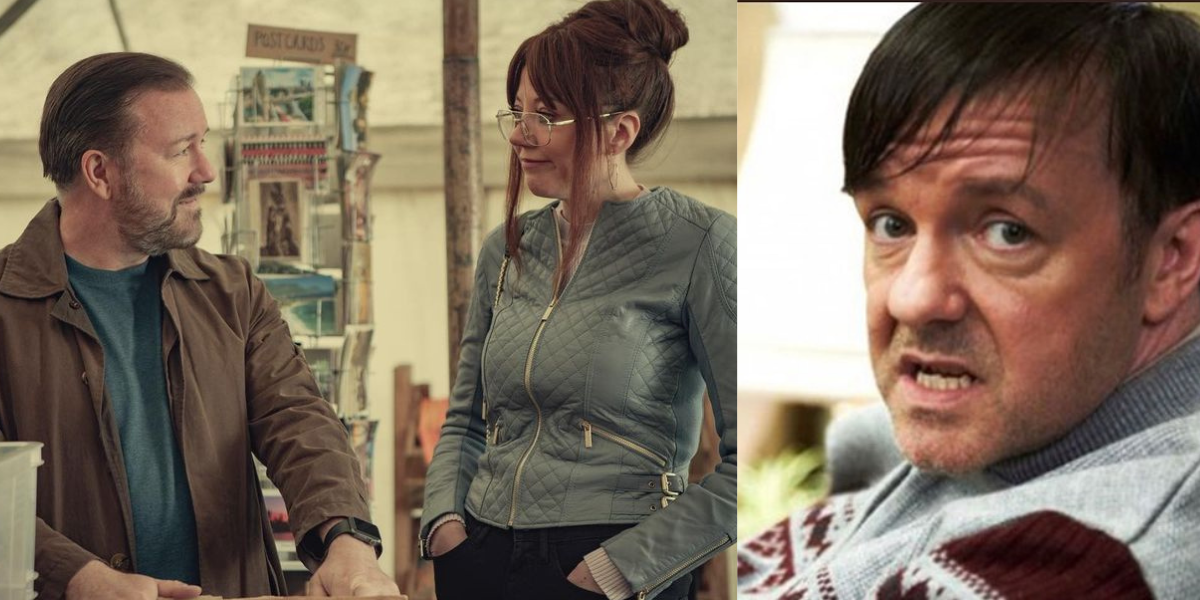Ricky Gervais Slams Critics As They Demand Censoring His Netflix Stand-Up Comedy Special

Currently, UK comedian Ricky Gervais is facing backlash for the jokes he made in his upcoming special ‘Armageddon.’ In the clip, he references young cancer patients as “baldy,” and uses a derogatory term for disabilities. He says this as part of a joke discussing his involvement with the Make-A-Wish Foundation. Critics started a petition demanding Netflix to remove offensive content. In response, the global star calls the “faux” offended hecklers.
Petition Against Troublesome Language
Not new to controversy, Ricky Gervais yet again manages to offend one and all with his hard-hitting jokes about taboo subjects, In the new Netflix special, the writer-actor of TV show “The Office” talks about his work with the Make-A-Wish Foundation. During the act, he jokes about the hair loss that cancer patients undergoing chemotherapy experience.
Critics say that this is in bad taste, and started a Change.org petition demanding Netflix to remove the contentious content, which gathered over 12,000 signatures. It triggered a broader conversation about how artists, in the name of comedy, hurt people’s feelings.

Jokes Are Not a Comic’s Ideology – Says Gervais
The 5-time Globe Globe host insists that cutting jokes is like playing a role and delivering a script. “I am right wing if that gets me a joke,” he says, “or I am left wing if that gets me more jokes.” Sadly, people think the jokes are the comic’s real opinions. “They are not a representation of my genuine beliefs or actions.” Using offensive terms in jokes doesn’t mean it aligns with his actual conduct in real life.
In short, Ricky Gervais stands firm in his belief that jokes are fictional, and meant for entertainment alone. He agrees that among his contemporaries, he takes the most backlash because of the taboo topics he selects. He pushes boundaries, but at the end of the day, jokes are fictional, as seen in “Derek” and “After Life,” which he acted and wrote, also available on Netflix.

Can’t Explain Jokes
Gervais concludes that he cannot keep justifying his jokes to hecklers who get offended for no reason. Besides, there is no point in constantly defending his jokes every time someone tries to hinder his artistic expression. They should lose this misconception that jokes are windows into a comedian’s authentic self.
If people find his content objectionable, they can choose not to view his stuff, but their sentiments don’t dictate his comedic approach. But ultimately, he says that addressing this is unnecessary despite the ongoing controversy.










